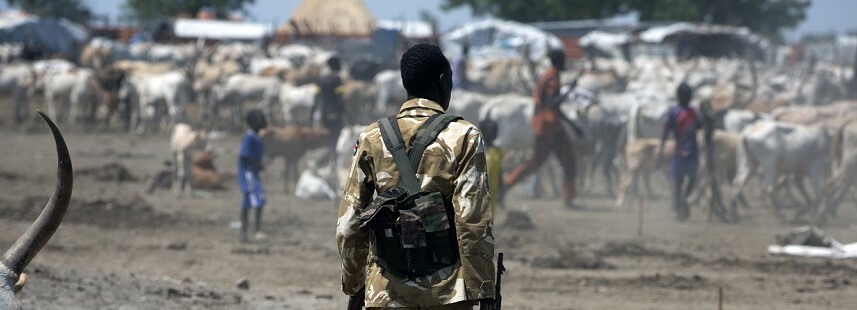The U.N. Security Council voted Thursday to extend an arms embargo on South Sudan for one year despite appeals from the world’s newest nation to lift or at least ease the restrictive measure.
The U.S.-sponsored resolution got the minimum nine “yes” votes in the 15-member council, with six countries abstaining – Russia, China, Mozambique, Algeria, Sierra Leone and Guyana.
The resolution also extends travel bans and asset freezes on South Sudanese on the U.N. sanctions blacklist until May 31, 2025.
U.S. deputy ambassador Robert Wood welcomed the resolution’s adoption saying extending the U.N. arms embargo “remains necessary to stem the unfettered flow of weapons into a region awash with guns.”
But Russia’s deputy U.N. ambassador Anna Evstigneeva accused the United States of ignoring all the positive achievements in South Sudan and focusing on sanctions “which they present as a sort of panacea for all of the country’s problems.”
She called the sanctions “burdensome,” noted calls for their lifting from South Sudan and the African Union, and said: “It is clear that at this stage, many of the Council sanctions regimes including South Sudan’s are outdated and need to be reviewed.”
Speaking to Radio Tamazuj about the extension of the arms embargo and sanctions, Edmund Yakani, a South Sudanese political observer, said: “The UN was not convinced that South Sudan is close to political stability. Culture of war is not likely to end in South Sudan.”
Adding,” War profiteers deserve to be sanctioned and controlled through arms embargo. We welcomed the decision of the UN Security Council. It is a remarkable decision promptly.”
South Sudan’s government could not immediately be reached for comment.
The UN Security Council imposed an arms embargo on South Sudan in July 2018 in the wake of renewed violence in July 2016 that collapsed the 2015 peace deal signed to end years of conflict.
While some members of the Council believe the sanctions are useful, others have voiced their concerns about the penalties negatively affecting the security situation in South Sudan.




